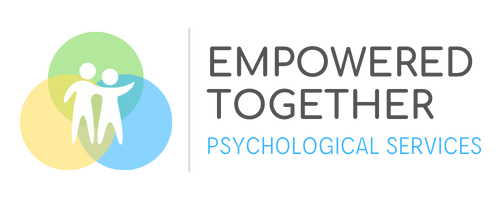
LGBTQIA+
Whether you’re relieved or scared to talk to an affirming therapist, I’ve got you.
I help children and parents feel supported.
Of course you want to help your child! But what about you? What about your complicated feelings about parenting a child who is or may be lesbian, gay, transgender, or questioning? Often, kids are cruising at lightspeed on their journey while you’re still trying to figure out what’s going on. I’m here to help slow things down so you can walk together.
Why an affirming provider?
Identity is complicated. By choosing to work with someone knowledgeable about LGBTQIA+ issues, parents can rely on me for guidance. Plus, LGBTQIA+ kids and adults don’t need to worry about educating me. We can get right to work on what matters to you.
Get specialized gender care.
I have worked with transgender, non-binary, and gender questioning youth of all ages, from Kindergarten through young adulthood.
Whether your child needs a gentle place to explore their identity, help with gender dysphoria, or you need help as a family to figure out how to move forward, I’m here. I slow down to meet each family member where they are and help guide you through difficult decisions together. Often parents right away worry about hormones or surgery or other types of transitioning, and I help you make the most informed, careful decisions possible.

“My mother’s last words to me were that of acceptance and love at a time I was filled with fear and hate of the world. My mother will always have the best place in my heart for giving me that gift.”
— Christopher M., 29, Washington, D.C. (PFLAG)
FAQs for Parents
What does LGBTQIA+ stand for, anyway?
The alphabet soup can be intimidating for parents. It doesn’t help that there are a lot of different acronyms people use - LGBT, GLBT, LGBTQIA, and more. Generally, the letters stand for: Lesbian, Gay, Bisexual, Transgender, Queer/Questioning, Intersex, and Asexual/Ally. You can find a more comprehensive list of terms and what they mean here.
What if I’m not comfortable with or disagree with my child being LGBTQIA+?
You wouldn’t be alone. A lot of parents fear their child may be punished by God, judged by family, or may have a hard life. Even the most accepting parents still can feel afraid for their child and worry that their child may not be sure or may not be old enough to know who they are. However, by working with an affirming therapist, you can be sure to learn what you need to know, get support around your own feelings as a parent, and help your family grow closer.
What is the difference between gay and transgender?
This stuff can be confusing if you are a straight, heterosexual, and cisgender parent (i.e., you’re not transgender). Usually when we talk about LGBTQIA+ people, we are talking about either a) gender identity or b) sexual identity.
gender identity: The gender your brain says you are. For most people, this is the same gender they’re told they have as a baby based on their body (i.e., cisgender). For transgender or other gender non-binary people, this gender is different than what their parents expected based on their body.
sexual identity: Lesbian, gay, bisexual, heterosexual, and asexual all describe sexual identities - these tell us about sexual attractions to people (or lack of attraction, for asexual folks).
romantic identity: We can get even fancier and describe who we’re attracted to romantically, not just sexually. For example, sometimes people are sexually and romantically attracted to women, but only sexually attracted to men (they don’t feel romantic love toward women).
Did I do anything to cause my child to be LGBTQIA+?
We don’t really know what “causes” sexual identity or gender identity, but there is evidence it is a mix of genetic and environmental contributions. There is also evidence that LGBTQIA+ people have consistent non-straight identities from an early age, and that there isn’t a way to “turn” someone straight or gay. People are just who they are. However, when people grow up in unaccepting environments, they may learn how to hide who they are from themselves or other people.



